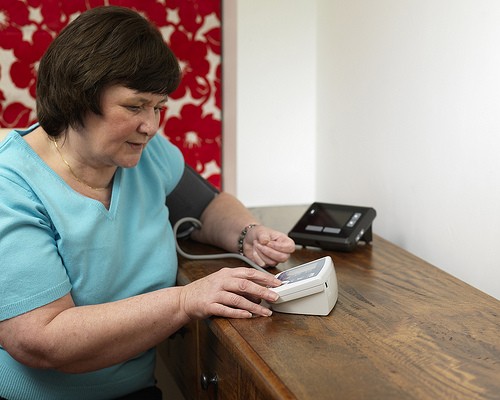
Even a slight rise in the blood pressure from the normal, commonly known as prehypertension, can increase the risk of strokes, a new study from China says.
Any blood pressure reading higher than the normal 120/80mmHg, poses stroke risk, according to Dingli Xu and colleagues.
Blood Pressure (BP) is a term used to measure the force of the blood flow against the walls of the blood vessels, each time the heart beats. BP readings that shows systolic pressure and diastolic pressure at or below 120 over 80 (120/80 mmHG) is considered to be normal, above 140/90 mmHG indicates high BP, while readings below 90/60 mmHG is considered to be low BP.
Prehypertension is a situation where blood pressure crosses the normal level, but does not reach a point where medication is required. A blood pressure reading of 140/90mmHG is generally considered to be prehypertension.
The study looked at 760,000 people, from 19 studies, followed for four to 36 years. Between 25 to 54 percent of the participants were suffering from pre-high blood pressure and prehypertension contributed to 20 percent of stroke cases in the studies.
Researchers found 66 percent higher risk of stroke in people suffering from prehypertension or borderline high blood pressure. People with high-range of prehypertension, i.e. BP above 130/85 mmHG and low-range of prehypertension were found 95 percent and 44 percent (respectively) increased risk of having a stroke than people with a normal blood pressure.
"These findings, if confirmed, have important takeaways for the public," study author Xu, MD, of Southern Medical University in Guangzhou, China, said in a news release. "Considering the high proportion of the population who have higher than normal blood pressure, successful treatment of this condition could prevent many strokes and make a major difference in public health."
Though prehypertension does not have any proper treatment, it can be managed by following a healthy lifestyle. A study published in Psychosomatic Medicine: Journal of Biobehavioral Medicine found that an intervention program that combines yoga and meditation helped lower blood pressure in people diagnosed with prehypertension.
Following are some tips from Mayo Clinic in the US to manage prehypertension:
- Follow a healthy diet rich in fruits and vegetables
- Shed the excess fat
- Limit salt intake
- Exercise 30 minutes daily
- Restrict alcohol consumption

















